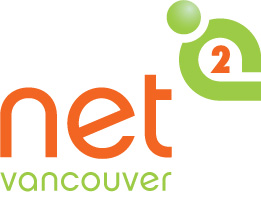Unconference schedules are determined on the day of the event by participants. But we’re collecting session proposals ahead of time. Add your idea to our wiki.
Here’s Some Proposed Sessions As Of July 28, 2010
How to get real hits
Kyle Berger – Jewish Community Centre
You’ve got a good website and products/services to sell/promote. What techniques can be used to get the right people to visit your site?
How to Choose a CMS (Content Management System) for your Organization
Lauren Bacon, Raised Eyebrow Web Studio
When you’re developing a new website, the selection of a Content Management System (CMS) is one of the most critical decisions you’ll make — and the list of options can be overwhelming. Let’s talk about how to create a framework for choosing the right CMS platform for your organization, based on factors like how technically-savvy your staff are, the features you need, what kinds of resources you have for managing updates, and your organizational culture (for example, does everything need to go through an approval process? Do you want your members/constituents to be able to contribute content to your site? etc.).
Making the Most out of WordPress
Christopher Mallon, University of British Columbia
Lots of organizations are using WordPress these days, not just for blogging but for creating fully functional websites. Outside of WordPress.com, you can use any programming language you want (for example, javascript) in combination with the wordpress interface, which makes a powerhouse combination. But as a new user, I’d like to talk about how we can truly make the most out of this platform – how to go beyond the blogs and do things that really amaze people.
Gaining Supporters: Building Tribes vs Finding Tribes
Chris Mathieson, Vancouver Police Museum
Non-profits need supporters–people that align with our causes and provide us with their energy, enthusiasm, audiences and, of course, money. I’d like to talk about practical strategies that involve social media to seek out and recruit new supporters for our organizations, spending a significant amount of time debating the merits of building vs finding aligned groups of people.
The Data Deluge: You’ve got donors, dollars, and a database, now what?
Benjamin Johnson, Union Gospel Mission
Non-profits of all shapes and sizes are in a remarkably advanced position compared to even the largest companies who rarely get to know the age, gender, home address, etc. of the casual consumer. Donors are different. You have a database full of giving patterns, people, and financial data, but are you doing anything with it? How about an open, non-technical, discussion about the very new topic of data and analysis.
Ninja School: Kicking Ass at Social Networking
Cecilia Lu, Kiwano Marketing
What are the top do’s and don’ts for using social media networks as a networking tool? How do you portray your non-profit’s personality online and engage your volunteers, stakeholders, and sponsors? When’s the right time for moving the conversation offline? Join the Ninja for a casual, down-to-earth discussion on practical tips about how to get personable online.
